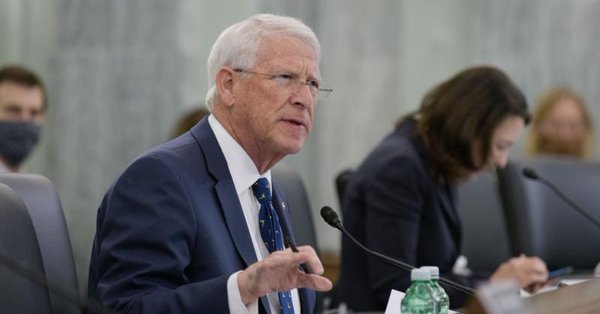McRae: Recent Federal changes will help Mississippians
By Treasurer David McRae
In the recently passed omnibus spending bill, Congress made some positive changes to the ABLE Act and to 529 education savings plans.
Prior to 2014, Americans with disabilities were extremely limited in the ability to save and invest for the future. In fact, just $2,000 in savings could disqualify someone from receiving other essential benefits and support. In December 2014, however, Congress passed the ABLE Act, giving thousands of Mississippi families a path to greater financial stability.
An ABLE account allows those with disabilities (and their families) the ability to save money without jeopardizing necessary benefits. These are tax-advantaged accounts that can be used to pay for disability-related expenses, including education, housing, transportation, employment training and support, assistive technology, personal support services, healthcare expenses, financial management, administrative services, and more.
According to the CDC, 1 in 3 Mississippi adults have a disability. It’s a challenge that truly impacts the way of life for many families. ABLE accounts were previously capped at an eligibility age of 26 years old — meaning an individual’s qualifying disability must have occurred prior to age 26.
With the help of Congressman Michael Guest (R-MS) and others who have long pushed for improvements, that eligibility age is now increased to 46, which expands the ABLE-eligible population by almost 75%. Nearly 6 million more Americans, including 1 million disabled veterans, will now be ABLE-eligible. While these changes won’t take effect until January 1 of 2026, advocates are starting now to educate eligible families about these accounts and ways they can be used effectively. The delayed start date allows an ample amount of time for state programs, administrators, and others to update forms and websites and prepare for the influx of individuals enrolling under the new rules.
The age adjustment will change ABLE education and outreach now that veterans with disabilities and individuals with traumatic injuries that occurred after age 26 will be eligible. A number of mental illnesses also present in middle-age, as do a host of rare and terminal diseases. In 2026 all of those individuals can take advantage of ABLE accounts for disability-related expenses. Once an ABLE account is opened the beneficiary, as well as their family members and friends, can contribute to it. Then, families or the beneficiaries themselves get to choose how the money is invested, providing a great opportunity to grow savings over time.
To learn more about the ABLE program, please visit www.MississippiABLE.com.
Another change in federal law included in the recently passed omnibus spending bill affects Mississippians who have 529 education savings accounts. Starting January 1, 2024, monies from a 529 college savings plans can be transferred tax-free to a Roth IRA for the same beneficiary. While there are a number of limitations, for those who qualify it can be an excellent way to jump start a Roth Individual Retirement Account. The limitations include limits on the amount of the rollover and a requirement that the 529 account must have been maintained for at least 15 years.
The average Mississippi college student graduates with $33,000, in student loan debt. That amount of debt can change or delay major life events, such as purchasing a home. Our college savings plans allow students and their families to save and invest for the future in tax-advantaged accounts to lessen that burden. And, with our prepaid tuition plan families can prepay tuition at today’s rates to guard against skyrocketing prices. Visit Treasury.MS.Gov to learn more.
Mississippi Treasurer David McRae is the 55th Treasurer for the State of Mississippi. In this role, he helps manage the state’s cash flow, oversees College Savings Mississippi, and has returned more than $60 million in unclaimed money to Mississippians. For more information, visit Treasury.MS.gov.




